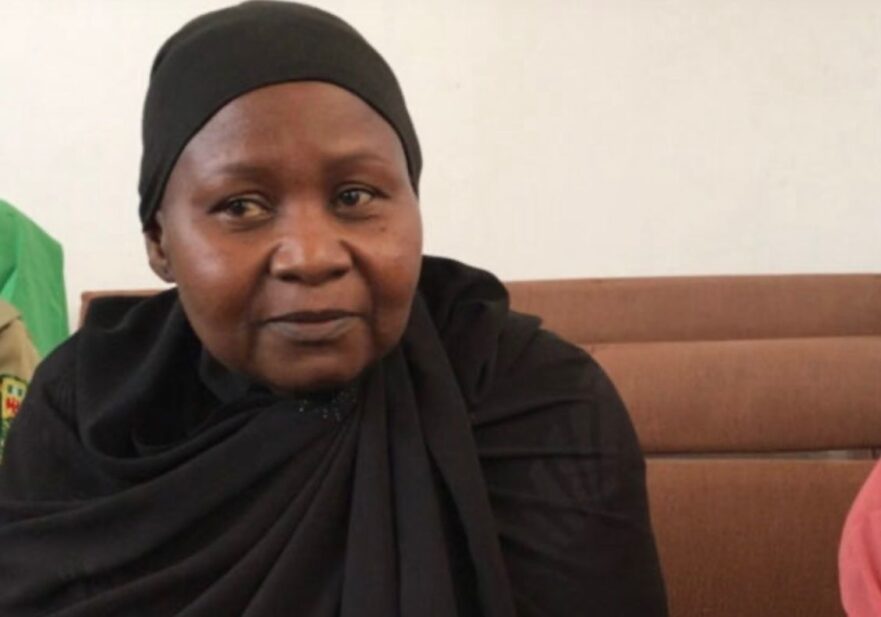- Rhoda Jatau now safe in undisclosed location while she awaits trial, still facing up to 5 years imprisonment.
- Jatau, a Christian and mother of 5, was imprisoned for allegedly sharing a blasphemous video that condemned the lynching of Christian college student Deborah Emmanuel Yakubu.
December 14, 2023
A judge in Bauchi State, Nigeria, has granted bail to Rhoda Jatau. Jatau, a Christian and mother of five, had been imprisoned since May 2022 for allegedly sharing a video on WhatsApp condemning the lynching of Deborah Emmanuel Yakubu, a Nigerian university student who was murdered and set on fire by a mob of her classmates in May 2022 for sharing her Christian faith. ADF International is supporting Jatau’s defence.
Prior to being granted bail, from the time of her arrest over 19 months ago, Jatau was repeatedly denied bail and detained incommunicado, only having intermittent access to legal counsel and family members during court appearances.
“We are glad to see that Rhoda Jatau finally has been granted bail after being denied it for so long,” said Sean Nelson, legal counsel for ADF International. “No person should be punished for peaceful expression, and international religious freedom advocates must continue to speak up on Rhoda’s behalf. We will continue to seek justice for Rhoda, and we are hopeful that the unjust charges against her will be dropped completely.”
The Nigerian ADF International allied lawyer, serving as lead counsel on Jatau’s case, responded: “After 19 long months in prison, we are happy that Rhoda finally has been released on bail. We thank all who have been praying for Rhoda, and we ask for your continued prayers as her case continues.”
Before granting bail, a judge in Bauchi State, Nigeria, refused to dismiss prosecutors’ case in their trial against Jatau. The decision to continue with the prosecution followed a “no case submission” filed by Jatau’s lawyers after the prosecution had rested based on serious evidentiary issues. Jatau’s lawyers raised significant legal failures in the prosecution’s case, and argued that they had not established the basic elements of their case against Jatau.
The grant of bail followed international outcry over Jatau’s imprisonment. Highlighting both Jatau and Yakubu’s cases, and in response to appeals from ADF International and other religious freedom advocacy organizations, United Nations experts sent a joint allegation letter to the Nigerian government earlier this year. The letter emphasized the danger of blasphemy laws as a violation of international human rights and called attention to Jatau’s unjust imprisonment.
Jatau’s trial is currently scheduled to resume on 19 December, but holiday schedules may push her next court date into 2024. Jatau is being charged under sections 114 (public disturbance) and 210 (religious insult) of the Bauchi State Penal Code and faces up to 5 years imprisonment if convicted of the charges against her.
Nigeria’s Persecution of Christians
The cases of Rhoda Jatau and Deborah Emmanuel Yakubu are but two examples of the widespread violence against religious minorities, including Christians in Northern Nigeria, prevalent in Nigeria today.
Together with other religious minorities in Nigeria, the persecution of Christians in Nigeria is especially severe. Worldwide, over 5,500 Christians were killed for their faith last year. Of those, 90% were Nigerian.
The criminalisation of blasphemy in Nigeria carries with it dangerous implications for the country as a whole. In a country of more than 200 million, split nearly evenly between Christians and Muslims, blasphemy laws are a significant driver of societal tensions. These laws punish the innocent for expressing their beliefs, silence people from sharing their faith, and perpetuate societal violence. Blasphemy laws throughout Nigeria encourage brutal mob violence and inflict severe harm on minority Muslims, Christian converts, and others.
Reprinted with permission from ADF International

